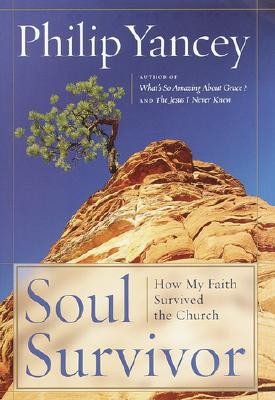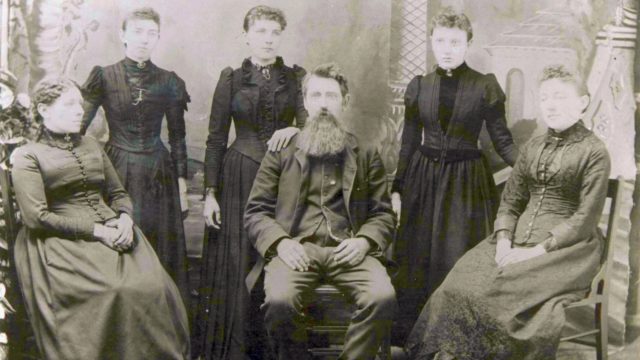Recent Reads
 I’ve had different degrees of success in my reading this summer. For example, though their premises were interesting and they were in general pretty good, I fell by the wayside and failed to finish Simplicity Parenting and Sarum. After waiting weeks for The Nest to become available at the library, the opening pages turned me off quickly by presenting me with a sordid encounter.
I’ve had different degrees of success in my reading this summer. For example, though their premises were interesting and they were in general pretty good, I fell by the wayside and failed to finish Simplicity Parenting and Sarum. After waiting weeks for The Nest to become available at the library, the opening pages turned me off quickly by presenting me with a sordid encounter.
Nevertheless, I’ve had some success. It’s a Beautiful Day, by Renee and Philip Murdoch, details its author’s healing from traumatic brain injury. An American missionary in Rio, Renee Murdoch was attacked by a homeless man who fractured her skull so violently that no one could have predicted she would survive, much less recover without any brain damage. It’s an inspiring story full of encouragement, gripping description, and quirky humor. It challenged me to persist in prayer, no matter how many times the same prayer may be required or how long it takes to reach complete — not partial — fulfillment.
The Givenness of Things, by Marilynne Robinson, is a book of essays of which I read a few. One modern trend Robinson explores in her searching, densely packed way is the loss of theological distinction and tradition in modern Protestantism. A Calvinist herself, she seeks to connect our public discourse and sense of politics to what she sees as a lack of depth in our churches. She is politically liberal and a proud proponent of “civil religion,” neither of which persuasions found a sympathetic chord in me. Yet she makes some good points that require a thoughtful consideration. For example:
The word “Christian” now is seen less as identifying an ethic, and more as identifying a demographic… This drift is the American version of a phenomenon that is clearly widespread throughout old Christendom. A ferocious secularism can carry on its internecine wars under the names Catholic and Protestant. Notional Christians can align themselves against actual Muslims in defense of European culture and civilization, which are based on a system of belief that is no longer believed, and are therefore under a severer threat than any they could face from a competing religion…
Who can fail to think of our current election season? Robinson reminds us that this is nothing new, but only “old humankind going about its mad business as if it simply cannot remember the harm it did itself yesterday.” But the fact that it’s not new doesn’t make it less serious. And perhaps, she writes, part of it is new: “There appears to me to be a dynamic at work that is new for us, a polarization of the good on one side and the religious on the other, which will be a catastrophe for American Christianity.”
Seeing the performance of Christians throughout this campaign, and seeing the apparent faith that salvation can be found in the political process, there can be little doubt that there has been a catastrophe for American Christianity. I don’t know if Robinson’s take explains it fully, but there is surely something very wrong.
I’ve enjoyed Wendell Berry’s Imagination in Place, a book of essays that take up literary topics. He has essays presenting his perspective on several authors that I like (such as James Still and Wallace Stegner), as well as those who have been among his longest writerly friends (James Baker Hall and Gurney Norman). As always, I enjoy making my way through these thoughtful essays on art and artists. One of my classmates in graduate school remarked that Wendell Berry’s prose literally slows you down as you read, and in our hectic age this is a gift that grows steadily more valuable.
While I’m sure I read Elizabeth George Speare’s Witch of Blackbird Pond many years ago, I remembered none of it. Rereading it in advance of this year’s American history study, I felt it to be a pitch-perfect YA novel, well paced, sympathetic, and rich in detail of the period. Though the depiction of the Puritans is weighted toward the stern and curmudgeonly, there are a few scenes that show them simply merry and enjoying the life of the community and the beautiful natural setting in Connecticut. The “witch” of the story, a Quaker woman, is somewhat idealized, but ultimately the story shows the faith community growing and learning.
Finally, I revisited Malcolm Gladwell’s Outliers. My original, more complete review of the book is here. While I feel this book stops short of taking a Marxist view of people, it does offer a critical examination of America’s version of the rugged individualist success story. Taking selected “outliers” who perform with an extraordinary degree of success — in the IT industry, the practice of law, hockey players, pilots, and math students, for instance — Gladwell makes a convincing case for external factors like the 10,000 hour rule, family and wealth, and the occasional once-in-a-lifetime window of opportunity that only comes to some. It’s a fascinating book that will make any parent consider how to help their children succeed — and encourage any individual to take a look around and see what opportunities may be quietly at hand.
One phenomenon Gladwell discusses is the importance of cultural heritage. He begins with a discussion of the Scots-Irish honor culture, and this is part of the subject matter of a book I expect to read soon: Hillbilly Elegy, by J.D. Vance. (You can read an interview with the author here.) The only catch is that the book needs to arrive — and just this morning I received a notice that it will be delayed. Oh well. I expect it to offer some needed insight into the surrealism of this election season, among other things.



3 Comments
Ruth
Oh, I’m waiting for The Nest too. :-(
Janet
Maybe it was brief, and then the rest of the story was fine. It just turned me off completely…
Carol in Oregon
Janet, I love your blog posts and highly value your responses to books. Thank you! I’m eager to read Hillbilly Elegy, also. I’m waiting five months for the book to get into inter-library-loan circulation in my library system. I started to read The Givenness of Things a few days before my sister died (suddenly). And for months after I was in a fog, reading light fiction. It may be time now to try again. Your words encourage me to do that.